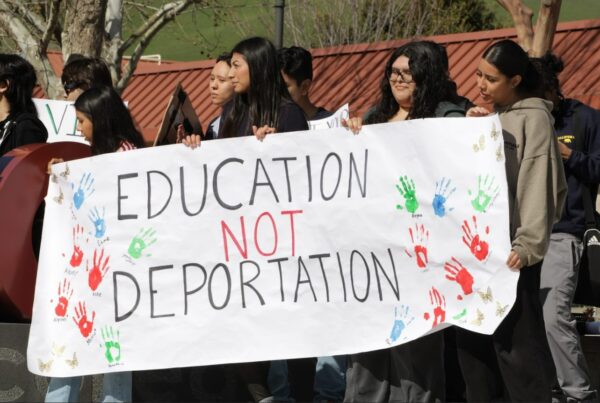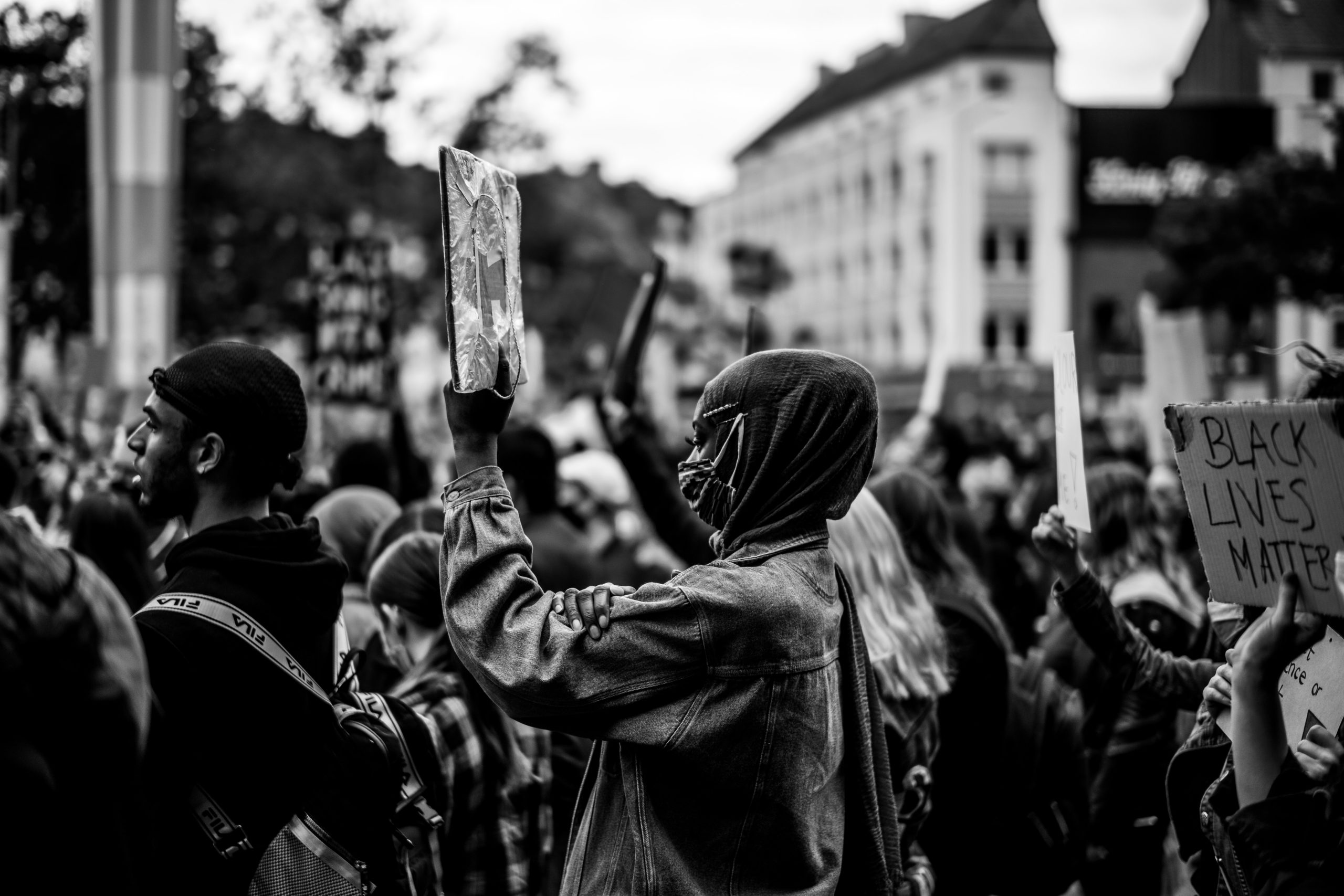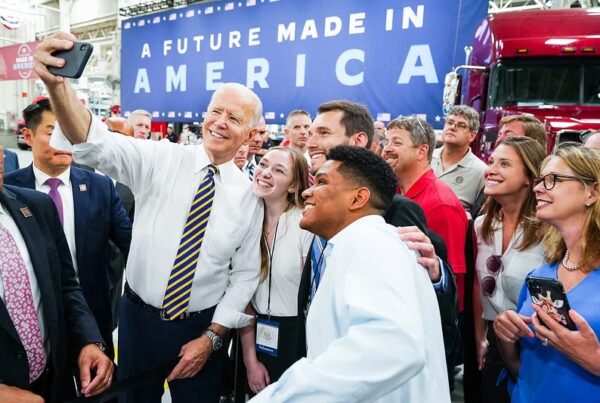By Jenn M. Jackson
October 26, 2020
On Tuesday, September 29 at the first presidential debate of the 2020 campaign season, President Donald Trump was asked to condemn white supremacist violence at anti-police brutality protests that have been happening all over the country in recent months. He refused. Instead, Trump blamed “antifa and the left” for the violence he has seen. When Democratic nominee and former Vice President Joe Biden mentioned the Proud Boys, a known white supremacist organization, President Trump said the group should “stand back and stand by.” Many have condemned President Trump’s comments and his disregard of the overt violence these types of groups engage in. But, the fact is: condemnation isn’t enough right now. Especially when it’s clear that young people are against white supremacy and its vestiges.
One of the clearest rejections of white supremacy has been the ongoing protest and removal of Confederate statues across the country. In 2015, activist Bree Newsome climbed a 30-foot flagpole in front of the South Carolina statehouse to remove the Confederate flag. She was promptly arrested. In August 2017, the “Unite the Right” white supremacist rally erupted in the sleepy college town of Charlottesville, Virginia, leaving a 32-year-old anti-racist demonstrator named Heather Heyer dead and many others injured. It’s pertinent to remember Trump referred to this two-day long white supremacist protest against the removal of a Robert E. Lee statue, bad actors “on both sides.”
In the past six months, since the death of George Floyd in May 2020, it’s estimated that 130 Confederate statues across the country have been removed. Our data support these recent social changes.
In the August 2020 GenForward Survey which includes 3,115 adults between the ages of 18 and 36 years old, we find that 64% of young Americans across racial groups believe that Confederate statues are symbols of racism rather than Southern pride. Young Americans of color were more likely to share this belief as 77% of Black Americans, 71% of Asian Americans, and 67% of Latinx Americans expressed this idea. A majority of young white Americans (59%) also shared this belief though the percentage is significantly smaller than those of respondents of color.
Young people are not only against the existence of these symbols of American racism, they are also overwhelmingly supportive of their removal. Pluralities of Asian (43%), Latinx (35%), and white (35%) Americans are in “strong support” of the removal of Confederate statues. Black Americans are the only group wherein a majority (55%) of respondents indicate that they “strongly support” the removal of Confederate statues. When including those who “somewhat support” the removal of Confederate statues, a majority of Black (77%), Asian (73%), Latinx (64%), and white (59%) Americans share this response.
Like the student activists and local protestors at UNC-Chapel Hill who toppled the 8-foot-tall statue of Confederate soldier “Silent Sam,” young Americans are openly and vocally rebuking white supremacy and it’s symbolism. Yet, these data are not just about the rejection of racist symbols. They are evidence that young Americans, across racial groups, do not support the preservation of misinformation, myth-making, and misrepresentation of this country’s racial history.
In this critical election season, one placed squarely during a global pandemic, major economic crises, and mass grief regarding the health and safety of our country, the commitment to white supremacy, anti-Black racism, and other systems of racial, gender, and sexual oppression are all the more consequential. When reflecting on President Trump’s continued refusal to speak directly against white supremacy in the United States, he’s clearly not in touch with the desires of young people, on this issue and many others. As young people continue to express their concerns both at the ballot box and in the streets, we will see how this lack of touch will shape politics in the years to come.
The GenForward Survey is associated with the University of Chicago. August 2020 responses were collected July 24th, 2020 through August 6th, 2020, among a nationally-representative sample of 3,115 young adults between the ages of 18 and 36. The overall margin of sampling error is +/- 2.54%.
Jenn M. Jackson (they/them) is a queer androgynous Black woman, an abolitionist, a lover of all Black people, and an Assistant Professor at Syracuse University in the Department of Political Science. Jackson’s research is in Black Politics with a focus on group threat, gender and sexuality, political behavior, and social movements. Jackson is a columnist at Teen Vogue, the author of peer-reviewed articles at Public Culture, Politics, Groups, and Identities, and the Journal of Women, Politics, and Policy, and the author of several forthcoming book chapters on the intersections of race, gender, class, and politics. Learn more about Jenn & the GenForward researchers here.
More Perspectives



